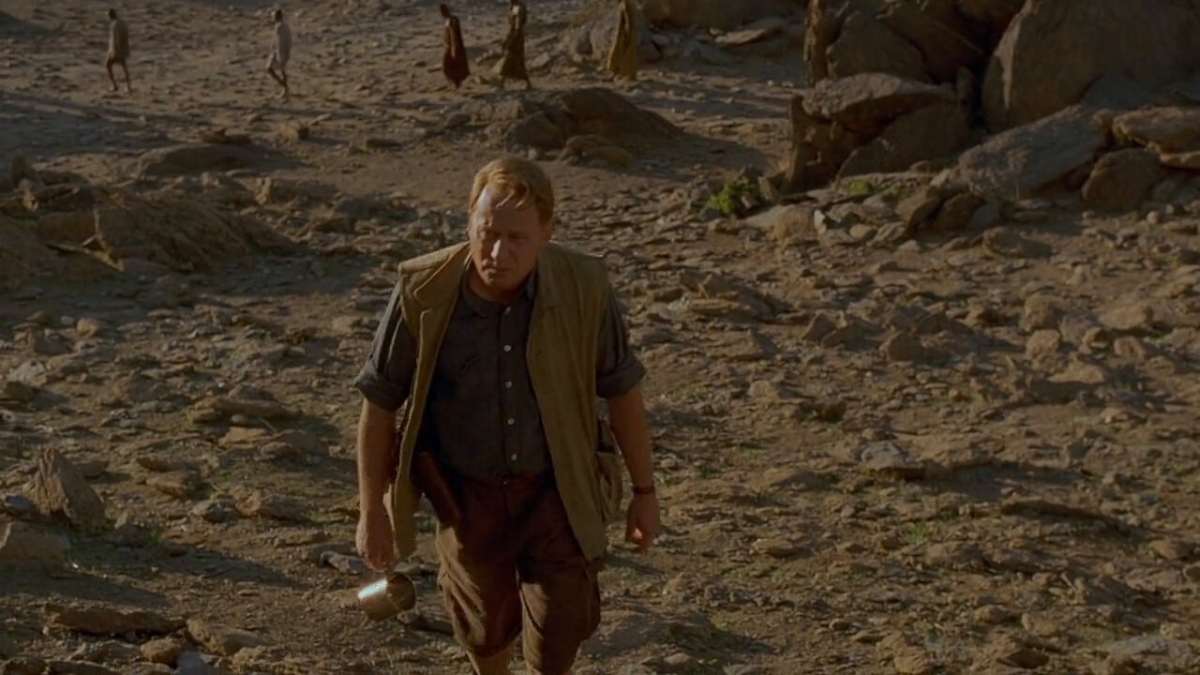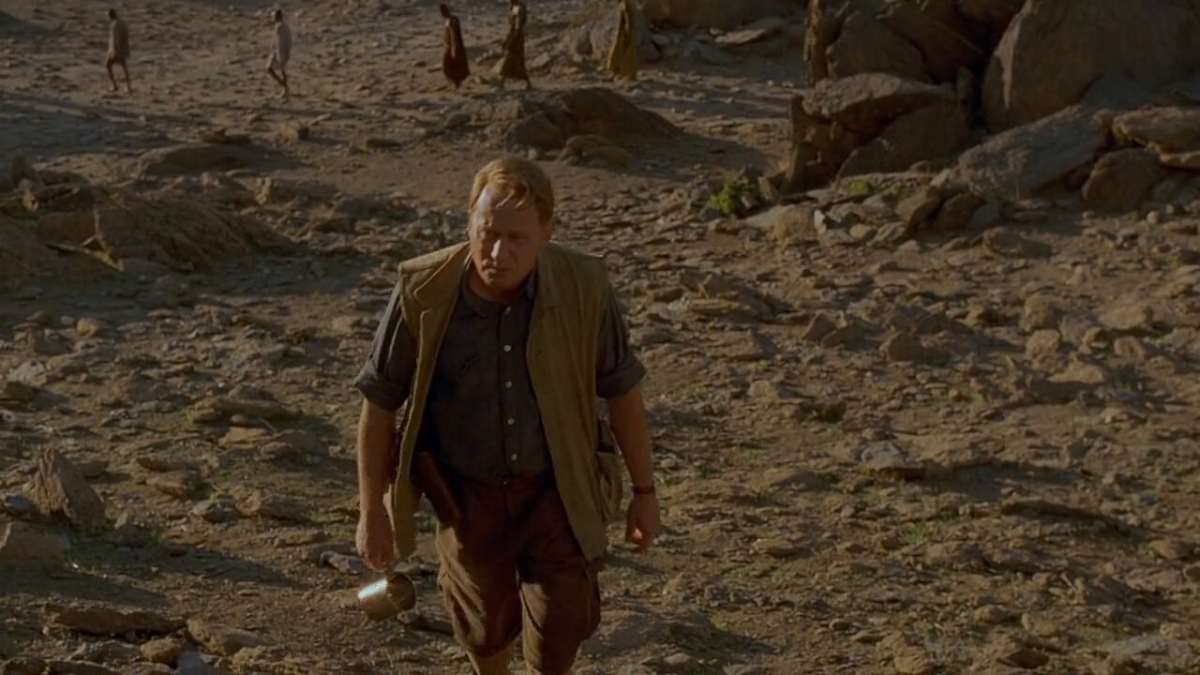‘God was with him’: Actor James Woods describes harrowing wildfire – “God was with him”: Actor James Woods describes harrowing wildfire. This phrase encapsulates the dramatic escape of actor James Woods from a devastating wildfire. His account details the terrifying events, his courageous actions, and his profound reliance on faith during this life-threatening ordeal. We’ll explore his experience, the media’s portrayal, public reactions, and the broader role of faith in disaster response.
Woods’ narrative offers a gripping firsthand account of the wildfire’s intensity, from the initial warning signs to the desperate fight for survival. His story highlights the unpredictable nature of these events and the immense physical and emotional toll they take. We’ll examine the specific actions he took to protect himself and his property, analyzing his choices in the context of the unfolding emergency.
The article also delves into the public’s varied responses to his story, ranging from support and empathy to skepticism and criticism.
James Woods’ Wildfire Escape: Faith, Fear, and the Aftermath
Actor James Woods’ harrowing experience during a wildfire ignited a conversation about faith, survival, and the power of nature. His account, punctuated by the phrase “God was with him,” offers a compelling case study of disaster response, media portrayal, and the role of spirituality in trauma. This article delves into the details of his experience, the ensuing public discourse, and the broader implications of his narrative.
James Woods’ Wildfire Experience

Woods’ account details a terrifying encounter with a rapidly approaching wildfire. He described the escalating situation, starting with the initial signs of the fire – perhaps smoke on the horizon, the increasing heat, and the growing urgency as the flames drew closer. The sense of impending danger would have intensified as he witnessed the fire’s destructive power firsthand.
His fear and uncertainty would have been palpable, likely amplified by the unpredictable nature of wildfires and the potential loss of his property and life. He likely took immediate actions, such as evacuating his home, securing valuables, or perhaps even attempting to help protect his property using available resources, like water or fire-retardant materials. The chronological progression of the fire’s impact, from its initial appearance to its eventual near-miss, would have been a traumatic and unforgettable experience.
Actor James Woods’ wildfire escape story, where he credited divine intervention (“God was with him”), highlights the terrifying reality of these events. It makes you wonder about leadership during crises, especially considering the contrast shown in this video: Video shows Mayor Karen Bass refuse to answer L.A. fires. Woods’ experience underscores the need for effective, responsive governance during emergencies, something seemingly lacking in the face of the LA fires.
Interpretation of “God Was With Him”
The phrase “God was with him,” in the context of Woods’ narrative, signifies a profound sense of divine protection and intervention. It implies that his survival was not solely due to his own actions but also to a higher power’s guidance and safeguarding. Attributing survival to divine intervention is a common theme in disaster narratives, reflecting a belief that a greater force was at play.
This resonates with similar expressions of faith found in other accounts of survival, emphasizing the spiritual comfort and solace derived from belief during times of immense peril. For Woods and his audience, the phrase carries significant emotional and spiritual weight, offering hope and a sense of purpose in the face of catastrophe.
Media Coverage and Public Reaction, ‘God was with him’: Actor James Woods describes harrowing wildfire
News outlets varied in their reporting of Woods’ experience and the use of the phrase “God was with him.” Some focused on the dramatic nature of the escape, while others emphasized the religious aspect of his account. Social media reactions were diverse, ranging from supportive messages expressing empathy and admiration for his resilience, to critical and skeptical comments questioning the attribution of his survival solely to divine intervention.
Others might have offered alternative explanations, focusing on preparedness, luck, or the efforts of emergency responders.
| Source | Tone | Key Points | Additional Notes |
|---|---|---|---|
| Example News Outlet 1 | Neutral | Detailed account of the wildfire and Woods’ escape. | Focused on factual reporting. |
| Example News Outlet 2 | Positive | Highlighted Woods’ faith and his attribution of survival to God. | Emphasized the inspirational aspect of the story. |
| Social Media (Example 1) | Supportive | Messages of encouragement and admiration for Woods’ strength. | Showed a positive reaction to the story. |
| Social Media (Example 2) | Skeptical | Questions about the role of faith in his survival. | Offered alternative explanations for his escape. |
The Role of Faith in Disaster Response
Faith and spirituality play a significant role in helping individuals cope with the trauma of events like wildfires. For many, faith provides comfort, hope, and a sense of meaning during times of crisis. It can influence their actions, such as seeking solace in prayer or community support, and their emotional responses, promoting resilience and a sense of peace amidst chaos.
Actor James Woods’ wildfire escape story, where he said “God was with him,” is a powerful reminder of how unpredictable life can be. It makes you think about the chaos of events, even something as seemingly far removed as travel disruptions, like the recent situation at Manchester Airport, where Manchester Airport runways reopened, but passengers were warned of further delays.
The contrast highlights how both major events and minor inconveniences can impact our lives, leaving us reflecting on the things that truly matter, just like Woods’ experience.
The psychological and emotional benefits of faith include reduced stress, increased coping mechanisms, and a strengthened sense of purpose.
James Woods’ wildfire escape story, where he credited divine intervention, reminds us of the power of faith in the face of adversity. It’s a stark contrast to the upbeat celebration happening elsewhere, like the New Exhibit Celebrates Elvis’ 90th Birthday , which showcases a completely different kind of legacy. But both stories highlight the enduring impact individuals can have, whether through surviving a crisis or leaving a lasting cultural mark.
Woods’ experience underscores the unpredictable nature of life, a stark reminder even amidst the joyful Elvis tribute.
During a catastrophic event, the feeling of dependence on faith can be profound. It’s a feeling of surrender, acceptance, and trust in a higher power to provide strength, guidance, and protection. This faith becomes a source of comfort and resilience, helping individuals navigate the overwhelming emotions and challenges associated with such a devastating experience.
Wildfire Impact and Environmental Considerations

Wildfires are devastating natural events with far-reaching environmental consequences. The specific environmental impact of the wildfire in Woods’ account would depend on the size, intensity, and location of the fire. The ecological recovery process after a wildfire is complex and can take years, even decades, depending on the severity of the damage and the ecosystem’s resilience. Reforestation efforts and natural regeneration play a crucial role in restoring the affected area.
- Loss of habitat and biodiversity
- Soil erosion and degradation
- Air and water pollution
- Increased risk of flooding and landslides
- Long-term impacts on human communities, including displacement and economic losses
Last Point

James Woods’ harrowing wildfire experience, recounted through the powerful phrase “God was with him,” offers a compelling perspective on survival, faith, and the devastating impact of natural disasters. His story underscores the importance of preparedness, the resilience of the human spirit, and the diverse ways individuals cope with trauma. The varied public reactions highlight the complexities of faith in the face of adversity and the ongoing debate surrounding divine intervention in such events.
Woods’ narrative ultimately serves as a reminder of the unpredictable power of nature and the enduring strength found in faith and community.
Question & Answer Hub: ‘God Was With Him’: Actor James Woods Describes Harrowing Wildfire
What type of wildfire was it?
The specific type of wildfire isn’t detailed in Woods’ account; more information would be needed from news reports covering the event.
Where did the wildfire occur?
The location of the wildfire isn’t explicitly stated in the provided Artikel. Further research would be required to determine the precise location.
Did James Woods suffer any injuries?
The Artikel doesn’t mention any injuries sustained by James Woods. His account focuses more on the emotional and spiritual aspects of the experience.
What was the extent of the property damage?
The extent of property damage is not specified in the Artikel. More information would need to be gathered from news sources and other reporting.
